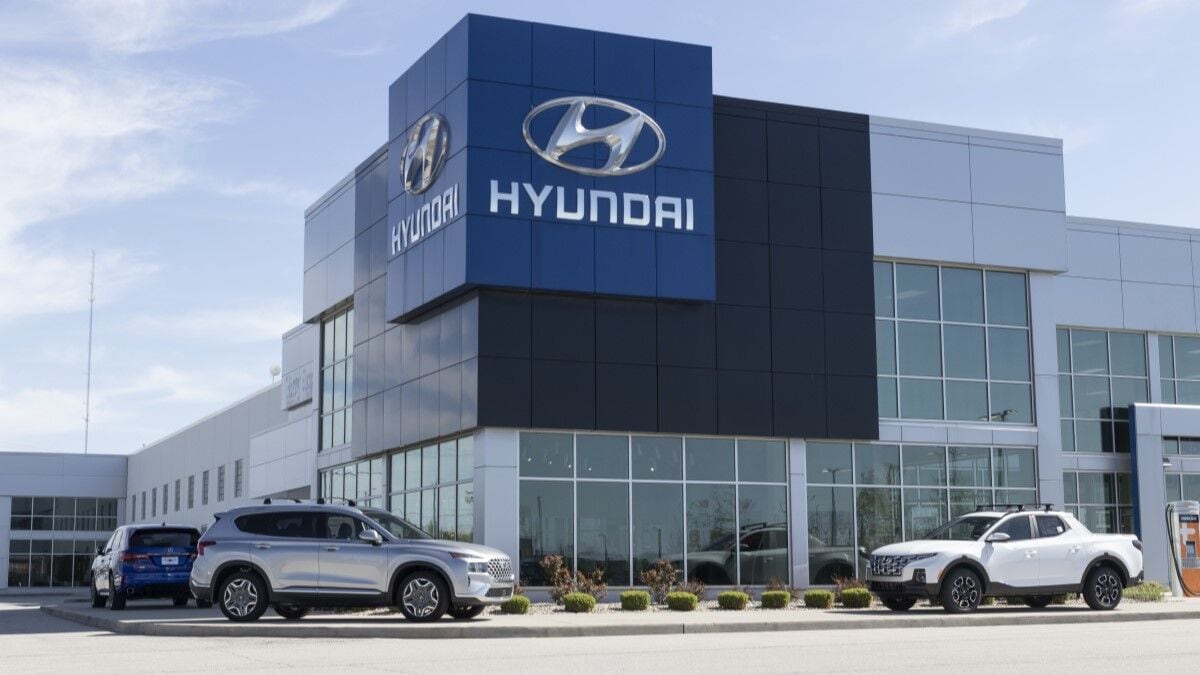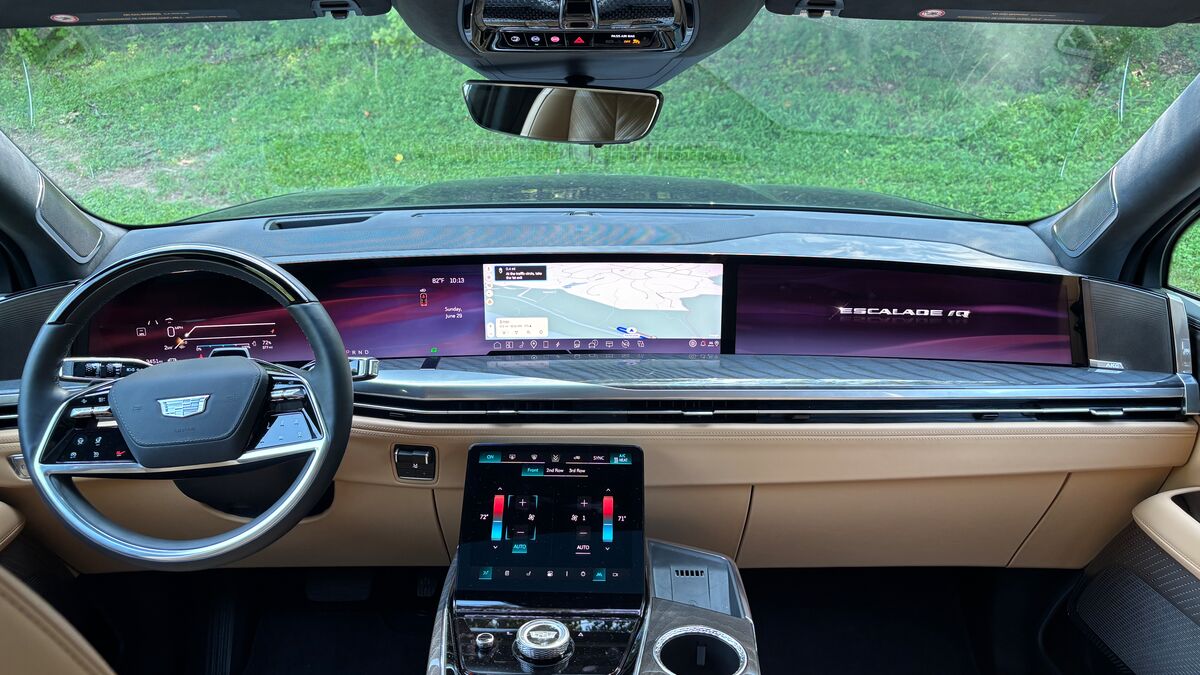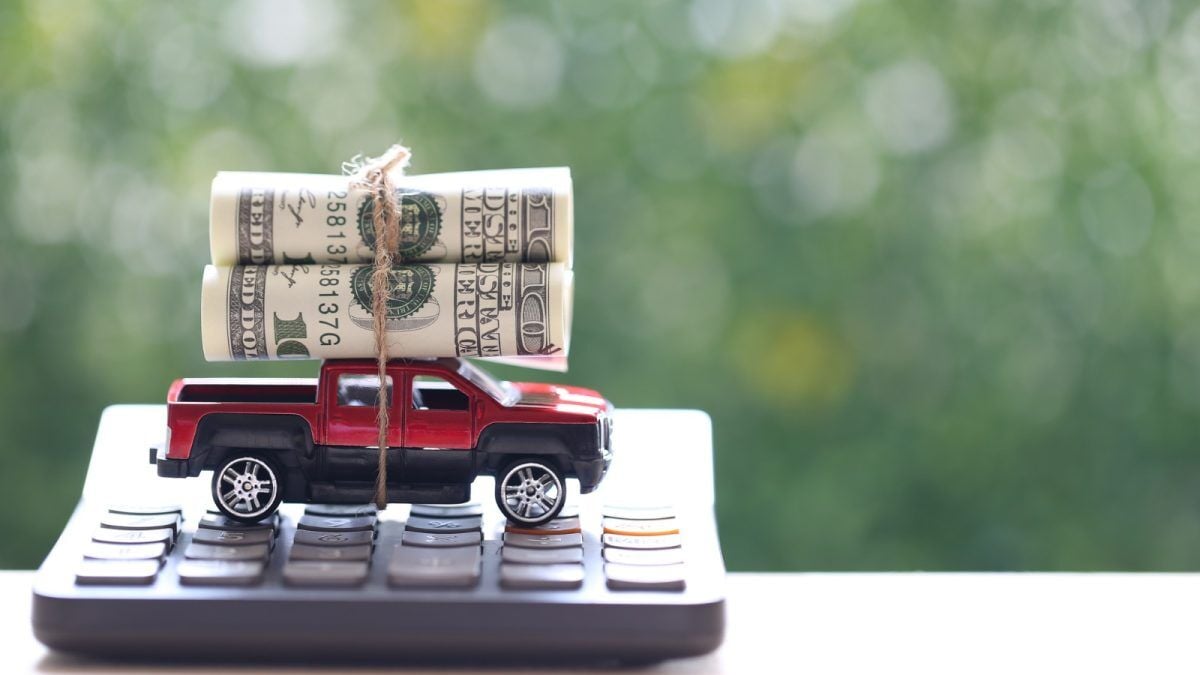- President Trump has agreed to lower tariffs on South Korean products, including cars, to 15%
- Canada and Mexico still face 25% tariffs, threatening Detroit automakers
South Korea and the United States have agreed to a trade deal that lowers tariffs on South Korean goods, including cars, to 15%.
It’s the third such deal in recent days following similar agreements with Japan and the European Union. It’s a big win for South Korean automakers Hyundai, Kia, and Genesis, and a softer win for domestic automakers that import some low-priced models, like the Chevrolet Trax, from South Korean factories.
However, the Detroit Three import far more cars and parts from Mexico and Canada, encouraged by decades of U.S. trade policy lowering trade barriers with those countries.
Now that European, Japanese, and South Korean automakers all face a 15% tariff on their cars while Detroit’s Big Three pay 25% on many of theirs, America tariffs America’s automakers more than it does their foreign competition.
Lobbying groups representing American automakers have been largely silent on the deal, which may be a sign of negotiations.
Great Volatility in the Headlines, Less in Car Prices
- Automakers and dealers have kept the tariffs from raising car prices dramatically
- Behind the scenes, they’ve faced financial turmoil
President Trump enacted a 25% tariff on new cars and car parts in early April. The move threatened to raise the price of most cars, as even cars built in the U.S. use many foreign parts.
Tariffs raise the price of goods. NBC News notes, “higher tariffs make it nearly certain that American households will pay higher prices for the everyday goods that are made overseas. American consumers face an effective tariff rate of 18.2%, the highest since 1934, translating to a loss of as much as $2,400 per household in 2025, according to the Yale University Budget Lab.”
Constantly shifting trade policy means many automakers have paid tariffs of 2.5%, 25%, and 15% in just five months.
Related: Is Now the Time to Buy, Sell, or Trade-in a Car?
Yet car prices have held remarkably stable, currently sitting barely 3% higher than a year ago. Sticker prices are rising faster, but the price buyers actually pay has stayed low. The delta could be a sign that automakers and dealers are absorbing much of the cost of tariffs in hopes they don’t last long.
A 10% drop for most of the world after just three months suggests they may be right.
South Korea to Accept More American Cars
- Trump says the deal will see more American cars sold in South Korea
- Asia consumers haven’t shown much appetite for American cars
Industry publication Automotive News notes, “Trump also said South Korea had agreed to ‘accept American product including Cars and Trucks, Agriculture, etc.’ That is likely to take the form of an agreement by Seoul to accept cars and trucks built to U.S. motor vehicle safety standards, without subjecting them to additional requirements.”
American cars have historically had a limited presence in the South Korean market. Large trucks and SUVs that sell well in America aren’t well suited to the country’s narrower roads and tighter parking spaces. Softening safety regulations may not change that.








